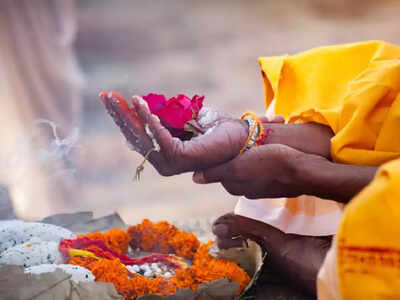The significance of Shradh is multifaceted. At its core, it is an expression of respect and remembrance, acknowledging the role ancestors played in shaping the present. By offering food, water, and prayers through rituals like tarpan, families seek to appease the souls, help them attain spiritual liberation, and clear the karmic burden of Pitru Rin (ancestral debt). These acts are believed to bring prosperity, peace, and divine protection to the living family members, aligning one’s life with dharma (righteous duty) and cosmic balance.
 Equally important are the dos and don’ts observed during Pitru Paksha. Ritual purity is emphasized—taking early morning baths, wearing clean attire, maintaining a sattvic (pure vegetarian) diet, and offering food to Brahmins, animals, and the needy are key aspects. Feeding cows, crows, and dogs is seen as a symbolic gesture that reaches the ancestors. At the same time, practitioners are advised to avoid inauspicious activities—refraining from shaving, cutting hair, consuming alcohol or meat, starting new ventures, or visiting temples during this spiritually sensitive time.
Equally important are the dos and don’ts observed during Pitru Paksha. Ritual purity is emphasized—taking early morning baths, wearing clean attire, maintaining a sattvic (pure vegetarian) diet, and offering food to Brahmins, animals, and the needy are key aspects. Feeding cows, crows, and dogs is seen as a symbolic gesture that reaches the ancestors. At the same time, practitioners are advised to avoid inauspicious activities—refraining from shaving, cutting hair, consuming alcohol or meat, starting new ventures, or visiting temples during this spiritually sensitive time.
Shradh also serves as a spiritual preparation for Navratri. By settling ancestral obligations before invoking the divine feminine during the festive days of Navratri, families begin this next spiritual phase with a cleansed soul and a clear conscience. The blessings of the ancestors are believed to energize and sanctify the household, enabling more meaningful participation in future auspicious events.
 Ultimately, Shradh is not merely a ritual—it's a heartfelt tradition that bridges the seen and the unseen, the past and the present. It reinforces the cycle of life, death, and rebirth while nurturing intergenerational continuity. Through this sacred observance, families reconnect with their roots, fulfill their spiritual responsibilities, and invoke the silent yet eternal blessings of their forebears.
Ultimately, Shradh is not merely a ritual—it's a heartfelt tradition that bridges the seen and the unseen, the past and the present. It reinforces the cycle of life, death, and rebirth while nurturing intergenerational continuity. Through this sacred observance, families reconnect with their roots, fulfill their spiritual responsibilities, and invoke the silent yet eternal blessings of their forebears.





